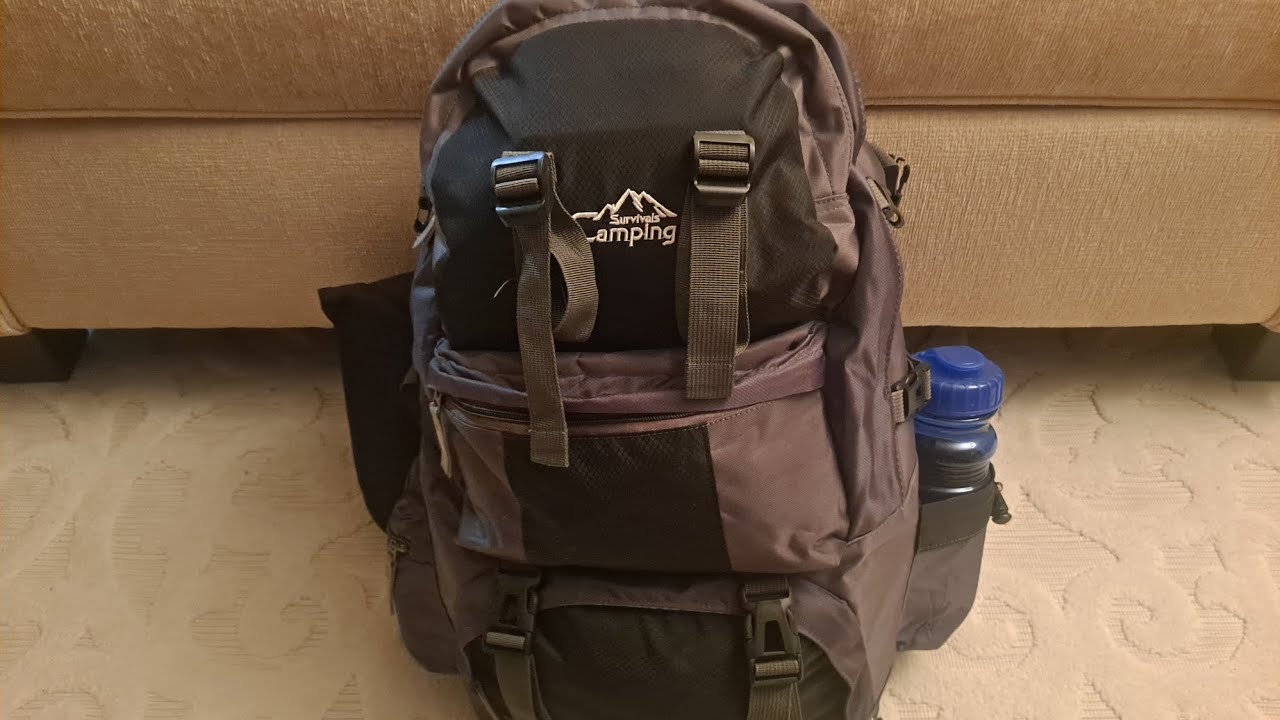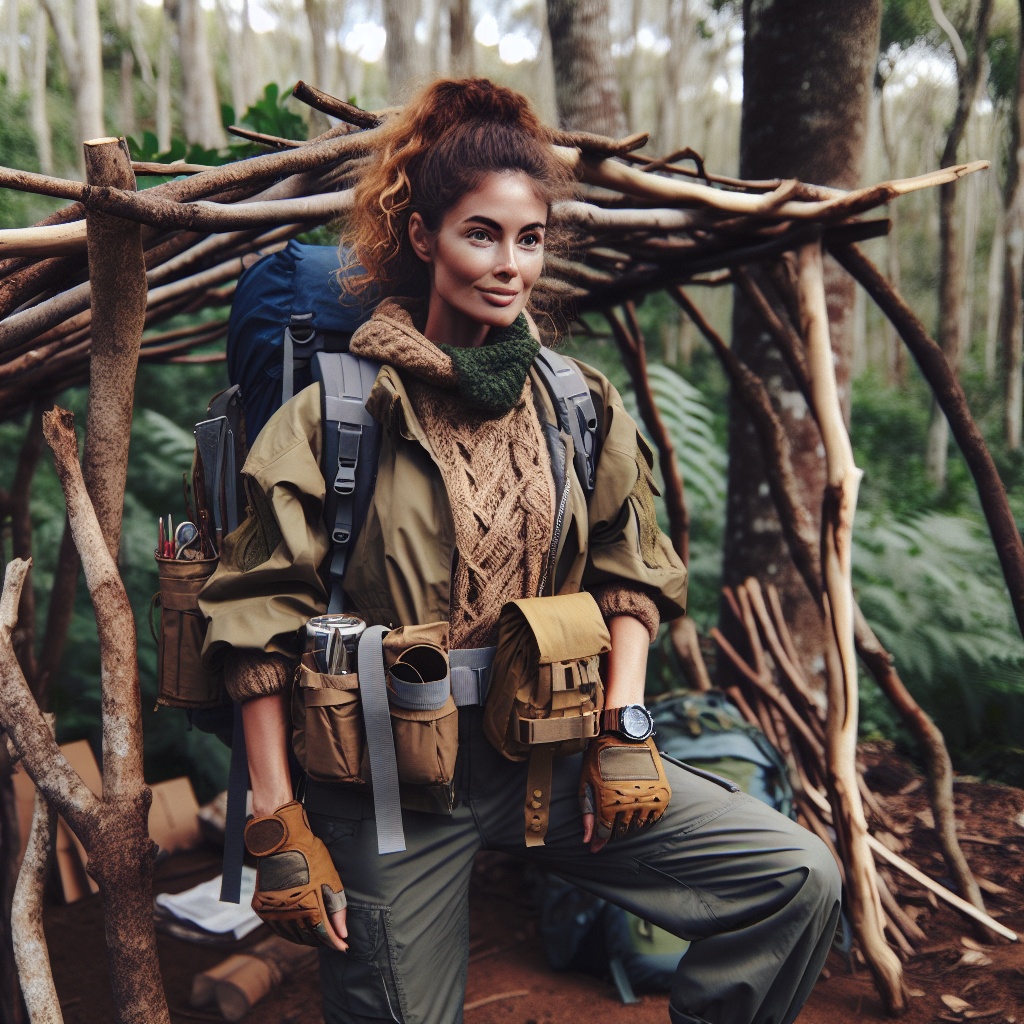Womens Preparedness
Navigating Urban Emergencies: Strategies for Safe and Efficient Travel

Title: Navigating Urban Emergencies: Strategies for Safe and Efficient Travel
Hello ladies, my name is Jade Tripp and I am here to share with you some valuable tips and strategies for navigating urban emergencies while staying safe and efficient during your travels. Whether you are walking to work, running errands, or exploring a new city, it is important to be prepared and aware of your surroundings at all times. By taking proactive steps and being vigilant, you can increase your safety and peace of mind while on the go.
First and foremost, it is crucial to have a mindset of preparedness. This means being aware of potential dangers and having a plan in place for how to handle different emergency situations. One of the best ways to do this is by taking a self-defense class. Learning basic self-defense techniques can give you the confidence and skills needed to protect yourself in a dangerous situation. Not only will you feel more empowered, but you will also be better equipped to handle unexpected events that may arise.
In addition to self-defense training, it is important to always have a safety plan in place when traveling in urban areas. This includes knowing the layout of the city, staying in well-lit and populated areas, and avoiding isolated or dangerous areas. It is also a good idea to share your travel plans with a friend or family member, so they know where you are and when to expect you back.
Another important aspect of staying safe while traveling in urban areas is being aware of your surroundings at all times. This means keeping your eyes and ears open, staying alert to any unusual behavior or potential threats, and trusting your instincts. If something feels off or uncomfortable, do not hesitate to remove yourself from the situation and seek help if needed.
When it comes to efficiency in travel, there are several tips that can help you move quickly and safely through urban areas. One key strategy is to plan your route in advance and familiarize yourself with public transportation options. By knowing the best routes and modes of transportation, you can save time and avoid getting lost in unfamiliar areas. Additionally, always carry a fully charged phone with emergency contacts programmed in, as well as a backup charger in case of an emergency.
In conclusion, navigating urban emergencies can be daunting, but with the right preparation and mindset, you can feel confident and safe while on the go. By taking self-defense classes, having a safety plan in place, staying aware of your surroundings, and planning your travel route ahead of time, you can increase your safety and efficiency while traveling in urban areas. Remember, your safety is important, so always be prepared and stay vigilant. Safe travels, ladies!
Womens Preparedness
BUG OUT BAG FOR WOMEN | EVACUATION | PREPAREDNESS | LONG TERM GOT TO GO BAG

Thank you for watching my video. Please Subscribe Like Share to my channel https://youtu.be/zuABiko5y40 …
source
Womens Preparedness
How Multitasking Can Help or Hinder Emergency Response

Hello, fabulous women! It’s Jade Tripp here, and today we’re diving into a topic that can undoubtedly make a difference in how we respond to emergencies—multitasking. As women, we often pride ourselves on our ability to juggle various responsibilities simultaneously. Whether it’s managing work deadlines while planning our kids’ schedules or organizing a community event, multitasking has become second nature for us. However, when it comes to emergency situations, this skill can either empower us or lead us astray.
The Double-Edged Sword of Multitasking
When you think of multitasking, you might think of being efficient and productive. Yet, in high-stress situations, our brains can become overloaded, making it challenging to focus on the most critical tasks. Let’s break this down into both the advantages and drawbacks of multitasking when it truly matters.
The Benefits of Multitasking
-
Quick Decision Making: In emergencies, time is of the essence. Girls, how many of us have been in a situation where we had to make rapid decisions? For example, consider the case of a woman named Sarah, who was at a grocery store when a sudden fire broke out. While most people stood frozen, she quickly assessed her surroundings, located her children, and ushered them towards the exit all while alerting others nearby. Her ability to multitask saw her through a critical moment.
-
Resourceful Thinking: Multitasking enables us to draw from various skills simultaneously. Just think about preparing your family for a camping trip—setting up tents, cooking, and keeping the kids entertained can require juggling many things. In emergencies, such as a natural disaster where you might need to help a neighbor while tending to your family, this resourcefulness can save lives.
- Enhanced Situational Awareness: Managing multiple tasks can heighten awareness. For instance, during an earthquake like the one that hit Napa Valley in 2014, women like me used multitasking to secure themselves, help others, and even account for pets. Training ourselves to multitask within safe environments can prepare us for real emergencies.
The Downsides of Multitasking
Despite its benefits, multitasking can also hinder our response in critical moments. Here are a few reasons why:
-
Cognitive Overload: When we attempt to do too much at once, our brains can become overwhelmed. This can lead to mistakes. For example, let’s take the story of Lily, who was making dinner while chatting on the phone when she heard a loud crash in her living room. In the chaotic rush to assess the situation, she accidentally knocked over a pot of hot water, causing a burn. Focusing on one task at a time—like ensuring her children were safe first—might have prevented the injury.
-
Compromised Focus: Our cognitive resources are finite, especially under stress. During emergencies, people sometimes lose focus and miss critical cues. Remember the freezing of the bystanders during an incident at a public park? Their attention was split, and the moments of hesitation that followed could have led to different outcomes had they acted decisively.
- Neglected Priorities: It can be easy to get caught up in less crucial tasks while ignoring what truly matters. In emergencies, we need to prioritize our safety above all. The tragic case of a mother in a bullying incident comes to mind—she was so busy filming the altercation on her phone she neglected to intervene, resulting in harmful consequences.
Finding the Right Balance
So how can we strike a balance in our multitasking abilities while remaining effective in emergency situations? Here are some practical tips that can make a world of difference:
-
Prioritize Tasks: Always remember: safety first. In case of emergencies, assess the situation quickly. Identify the immediate threats and act accordingly. Teach yourself to prioritize by practicing scenarios that might arise.
-
Practice, Practice, Practice: The more training we have, the more instinctive our responses will become. Participate in personal safety classes or emergency drills. Organizations like the American Red Cross offer courses in first aid, CPR, and emergency preparedness that can help you react faster and more efficiently.
-
Limit Distractions: When you hear an alarm or a loud noise, resist the urge to multitask. Focus on what’s essential—your well-being and that of others. Think of Jessica, a teacher who, during a lockdown drill, removed distractions and kept her students focused on safety—her calmness in prioritizing over multitasking led to reduced anxiety.
- Mindfulness Techniques: Engage in mindfulness practices to improve focus. Breathing exercises and grounding techniques can preserve your mental strength during tense moments.
Final Thoughts
Ladies, multitasking is an incredible skill we have honed, and while it can lead to efficiently managing everyday life, we must adapt our approach in emergencies. By understanding its strengths and limitations, we can cultivate a more effective and empathetic response to critical situations.
Let’s equip ourselves with the mindset and the knowledge to act in times of crisis. Remember, preparation is key, and embracing our roles as powerful, multitasking women doesn’t just mean juggling everyday tasks—it means being ready to protect ourselves and our communities, no matter the situation!
Stay strong and stay safe! 💪🌟
Womens Preparedness
Empowering Women with Essential Outdoor Survival Shelters

Empowering Women with Essential Outdoor Survival Shelters
Hello, fierce warriors! I’m Jade Tripp, and today, we’re diving into a subject close to my heart: outdoor survival shelters. As women, it’s crucial that we equip ourselves not just with knowledge, but also with the skills that empower us in various situations, especially when it comes to self-defense and preparedness in the great outdoors.
Whether you’re a weekend camper, an adventurous hiker, or simply someone who loves the beauty of nature, understanding how to create a survival shelter can be a game-changer. Let’s explore the essentials together!
Why Outdoor Survival Shelters Matter
Outdoor survival shelters can be a lifeline in emergencies, but they also instill a sense of confidence and independence in each of us. Picture this: You’re on a solo hike in the Appalachian Trail, and suddenly, the weather takes a turn, or you miscalculate your return time. Having the know-how to construct a reliable shelter could mean the difference between discomfort and safety.
Essential Types of Shelters
Let’s break down some fundamental shelter types that every woman should be familiar with:
-
Lean-To Shelter
- What is it? A simple structure that can be set up against a fallen tree or rock face, leaning against the support for a sturdy base.
- How to Build It: Start by finding two strong supports. Lay smaller branches against them at an angle, creating a roof. Use leaves, pine boughs, or any available debris for insulation and to protect you from rain.
- Real-Life Example: Sarah McLachlan, a singer-songwriter and humanitarian, once spoke about a camping trip where she had to use a lean-to shelter during an unexpected storm. She was able to stay dry and safe, allowing her to continue her journey with confidence.
-
Debris Hut
- What is it? A natural shelter made from available materials, such as branches and leaves.
- How to Build It: Create a framework with a strong central pole and lean smaller branches against it to form a roof. Pack as much debris (leaves, grass, etc.) onto the roof to provide insulation.
- Inspiration: Consider the survival story of Kelly McGonigal, psychologist and author, who found herself lost in the wild and had to build a debris hut. With determination and a little knowledge, she survived overnight until help arrived.
- Tarp Shelter
- What is it? A versatile shelter made using a waterproof tarp.
- How to Build It: Use ropes to create a high point, then drape the tarp down to the ground. This creates a protection from rain on one side while keeping airflow on the other.
- Community Tip: Many outdoor enthusiast groups, like REI workshops, offer classes on using tarps effectively. These can be fantastic places to learn among women with shared interests!
Gear That Supports Your Shelter-Building Endeavors
Having the right gear can enhance your outdoor experiences and ensure you are prepared in case you need to construct a shelter:
- Multi-tool: This handy device can assist in gathering materials and making necessary adjustments to your shelter.
- Rope/Paracord: Strong and lightweight, it’s essential for securing materials together.
- Emergency Blanket: Lightweight and compact, it can retain body heat or serve as an additional layer for insulation in your shelter.
The Importance of Practice
Just like any skill, practice is key. Create a fun outdoor day with your friends or fellow women adventurers where you simulate building shelters. It’s not just about learning, but also bonding and empowering each other.
In fact, the Women’s Wilderness Institute offers excellent programs that cater to women eager to learn outdoor skills, including shelter building! By participating, you not only sharpen your techniques but also build a community of supportive, empowered women.
Confidence Through Knowledge
Understanding how to construct outdoor shelters is not just a survival skill; it’s about embracing confidence, independence, and empowerment. The wilderness can be unpredictable, but with the right knowledge, we can tackle it head-on.
Remember, every expert was once a beginner. When you gather with other women, share stories, and support each other, you’re creating an unbreakable sisterhood united in strength.
So, let’s empower each other by learning, growing, and preparing for whatever adventures life throws our way. Together, we can conquer the world—one shelter at a time!
Happy adventuring, ladies! 🌲💪
-

 Womens Self Defense11 months ago
Womens Self Defense11 months agoNew Legislation Empowers Women to Defend Themselves
-

 Self Defense News1 year ago
Self Defense News1 year agoShe was convicted of killing her abusive boyfriend. Now a Maple Grove woman is home awaiting a new trial.
-

 Self Defense News1 year ago
Self Defense News1 year agoSelf-Defense for All: The new Gracie Jiu-Jitsu Pasadena is for everyone | Online Features
-

 Womens Self Defense1 year ago
Womens Self Defense1 year agoTop 5 Self-Defense Techniques Every Woman Should Know
-

 Womens Self Defense7 months ago
Womens Self Defense7 months agoUnderstanding State-by-State Variation in Self Defense Laws
-

 Womens Fitness1 year ago
Womens Fitness1 year agoXtreme Bodyweight HIIT (Lots of Jumping!) | Joanna Soh (Fio Series)
-

 Womens Preparedness1 year ago
Womens Preparedness1 year ago10 essential skills for surviving in the great outdoors
-

 Womens Preparedness1 year ago
Womens Preparedness1 year agoEmpower Yourself: A Guide to Female Survival Planning



